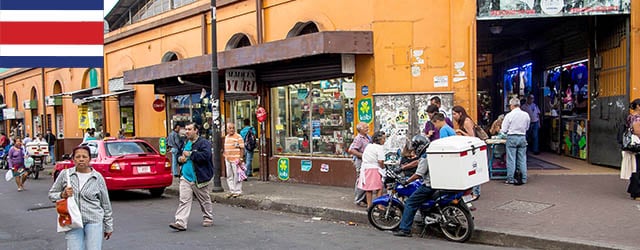Frontier Markets Report

Costa Rica has a long history of actively and successfully seeking outside investment.
Costa Rica’s courtship of FDI started during the presidency of Tomás Miguel Guardia Gutiérrez (1870–1876 and 1877–1882), who sought foreign investment for the country’s railways. A century later Costa Rica began developing strategies to increase development and attract FDI from as many countries as possible. Anthony Kim, senior policy analyst with the Heritage Foundation, a Washington-based think tank, notes: “But the real momentum came in the early 2000s.”
The momentum produced agreements with the United States and other countries, membership in the Central America Free Trade Agreement and an association agreement with the European Union. These agreements produce an export market many times the country’s small size.
Further abroad, president Luis Guillermo Solís traveled to China in January in search of FDI for highway projects. Chinese FDI into Costa Rica has exceeded $500 million since the two countries established diplomatic relations eight years ago, and Costa Rica took its courtship of Chinese investment so seriously that it sacrificed relations with Taiwan in 2007. Recently, Ulbado Garcia Ruiz, the ambassador to India, urged industrialists there to invest in Costa Rica.
Other initiatives have included simplifying regulatory requirements in areas such as business licensing. “Overall some people may argue that it is still burdensome, but in the big picture the country has been simplifying its regulatory requirements.” Kim explains.
Among its advantages, Costa Rica has one of the most highly educated work forces in Latin America. “They are trying to be a more knowledge-based economy,” Kim notes. Much of the workforce is bilingual, speaking both English and Spanish.
Costa Rica also offers several advantages not found in some other frontier markets, such as a stable political environment, democratic institutions, unfettered repatriation of profits, and policy predictability—meaning freedom from sudden changes. “Business people know what is going to happen in coming years.”
These advantages have attracted a blue-chip list of foreign companies, many of them franchise operations such as Starbucks, along with pharmaceutical companies such as Bayer and technology companies such as Japan’s SMC.
FDI has steadily increased since the early 2000s. It reached $2.7 billion in 2013, according to figures provided to Global Finance by the Costa Rican Investment Promotion Agency (CINDE). Of that, the United States accounted for 46.2%, followed by Spain at 7.9% and Mexico at 5.4%. CINDE also says that FDI inflows financed 90% of the current-account deficit in the past decade.
Current FDI targets include infrastructure and sectors that will bring in cash: export-oriented industries such as high technology projects and manufacturing and services such as tourism, which is poised for recovery in 2015.
However, Costa Rica is dealing with high unemployment and an uncertain fiscal outlook, given that the government plans to ramp up spending on social programs, which could raise the debt level. The banking system, while stable, is not fully developed. Moreover, there can be difficulties in accessing local capital, and tax reform is much needed, Kim notes. Costa Rica also has a large informal economy that is under the radar of authorities. Foreign companies would do well to ensure that all dealings occur within the formal economy, as the lack of transparency and records would make legal remedy impossible in a dispute with a company in the informal economy.
|
|
|
|||||||||||||||||||||||||||
|
Sources: BBC Costa Rica Profile, the Ethical Traveler Foundation, QCostaRica, The Costa Rica Star, The Costa Rican Times, The New Indian Express, The Tico Times, World Bank. For more information on Costa Roca, check out our Country Economic Reports. |
|||||||||||||||||||||||||||||



